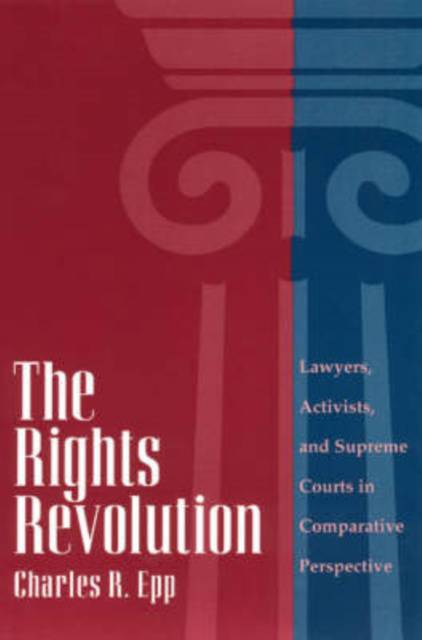
Je cadeautjes zeker op tijd in huis hebben voor de feestdagen? Kom langs in onze winkels en vind het perfecte geschenk!
- Afhalen na 1 uur in een winkel met voorraad
- Gratis thuislevering in België vanaf € 30
- Ruim aanbod met 7 miljoen producten
Je cadeautjes zeker op tijd in huis hebben voor de feestdagen? Kom langs in onze winkels en vind het perfecte geschenk!
- Afhalen na 1 uur in een winkel met voorraad
- Gratis thuislevering in België vanaf € 30
- Ruim aanbod met 7 miljoen producten
Zoeken
The Rights Revolution
Lawyers, Activists, and Supreme Courts in Comparative Perspective
Charles R Epp
Paperback | Engels
€ 55,95
+ 111 punten
Omschrijving
It is well known that the scope of individual rights has expanded dramatically in the United States over the last half-century. Less well known is that other countries have experienced "rights revolutions" as well. Charles R. Epp argues that, far from being the fruit of an activist judiciary, the ascendancy of civil rights and liberties has rested on the democratization of access to the courts--the influence of advocacy groups, the establishment of governmental enforcement agencies, the growth of financial and legal resources for ordinary citizens, and the strategic planning of grass roots organizations. In other words, the shift in the rights of individuals is best understood as a "bottom up," rather than a "top down," phenomenon. The Rights Revolution is the first comprehensive and comparative analysis of the growth of civil rights, examining the high courts of the United States, Britain, Canada, and India within their specific constitutional and cultural contexts. It brilliantly revises our understanding of the relationship between courts and social change.
Specificaties
Betrokkenen
- Auteur(s):
- Uitgeverij:
Inhoud
- Aantal bladzijden:
- 342
- Taal:
- Engels
Eigenschappen
- Productcode (EAN):
- 9780226211626
- Verschijningsdatum:
- 15/10/1998
- Uitvoering:
- Paperback
- Formaat:
- Trade paperback (VS)
- Afmetingen:
- 154 mm x 230 mm
- Gewicht:
- 467 g

Alleen bij Standaard Boekhandel
+ 111 punten op je klantenkaart van Standaard Boekhandel
Beoordelingen
We publiceren alleen reviews die voldoen aan de voorwaarden voor reviews. Bekijk onze voorwaarden voor reviews.









